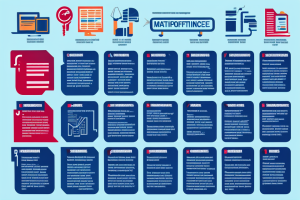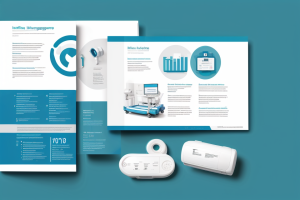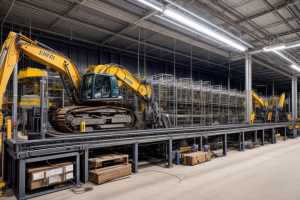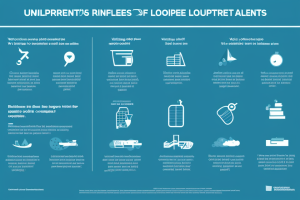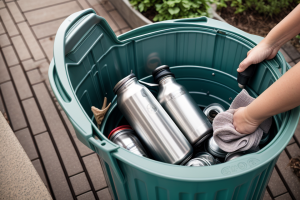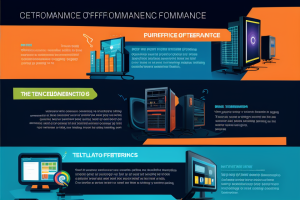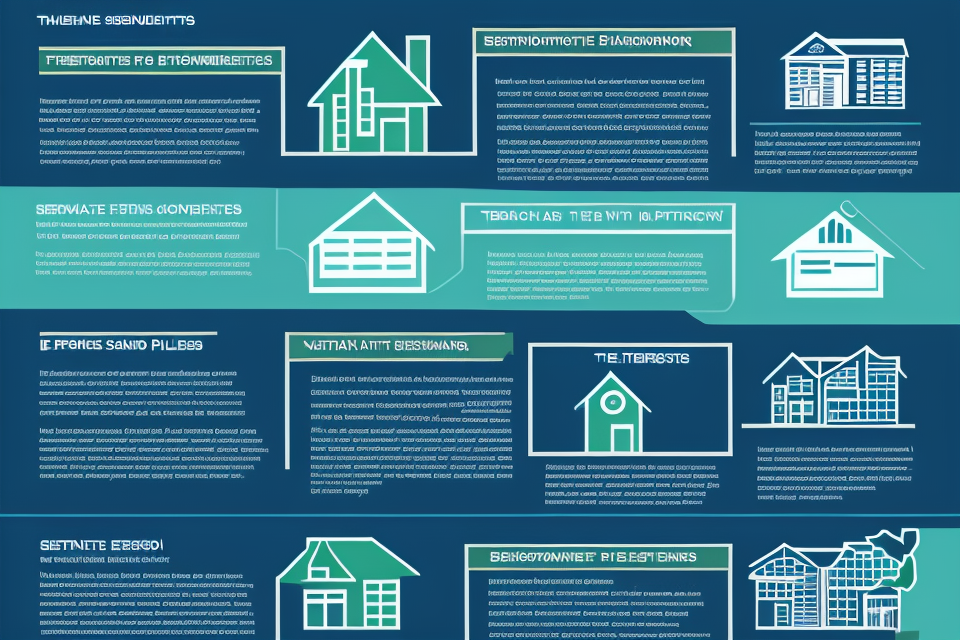
Are you a tenant in Texas? Do you know what repairs you are responsible for? Texas law outlines specific responsibilities for both landlords and tenants when it comes to repairs. This guide will provide a comprehensive overview of tenant responsibilities for repairs in Texas. From understanding the difference between routine and emergency repairs to knowing what repairs are your responsibility as a tenant, this guide has got you covered. So, whether you’re a seasoned renter or a first-time tenant, read on to learn more about your responsibilities when it comes to repairs in Texas.
Tenant Responsibilities for Maintenance and Repairs in Texas
General Maintenance Responsibilities
Cleaning and Keeping the Property Clean
As a tenant in Texas, it is your responsibility to keep the rental property clean and tidy. This includes sweeping, mopping, dusting, and vacuuming the floors, as well as cleaning the bathrooms, kitchen, and any other areas of the property. Tenants are also responsible for keeping their personal belongings clean and tidy, and for disposing of trash and recycling in a timely and responsible manner.
Keeping the Property Free from Pests
Tenants are responsible for preventing pests from entering the rental property. This includes keeping the property clean and free from clutter, sealing any holes or cracks, and promptly reporting any pest infestations to the landlord. Tenants may also be responsible for treating pest infestations, depending on the terms of the lease agreement.
Promptly Reporting Any Maintenance Issues to the Landlord
Tenants are responsible for promptly reporting any maintenance issues to the landlord. This includes issues such as leaks, broken appliances, and other problems that may arise during the tenancy. Tenants should provide detailed descriptions of the issue, including the location and severity of the problem, and should follow up with the landlord to ensure that the issue is being addressed in a timely manner. By promptly reporting maintenance issues, tenants can help to prevent minor problems from becoming major ones, and can ensure that the rental property remains safe and habitable.
Repair Responsibilities
Repairing or Replacing Damages Caused by the Tenant or Their Guests
As a tenant in Texas, it is your responsibility to repair or replace any damages caused by you or your guests during your tenancy. This includes, but is not limited to, damages caused by negligence, accidental damage, or intentional damage. For example, if you or your guest accidentally knocks over a lamp and it breaks, you would be responsible for repairing or replacing the lamp.
It is important to note that landlords may require tenants to pay a deposit upfront to cover any potential damages caused during the tenancy. This deposit may be returned to the tenant at the end of the lease term if the property is returned in the same condition as it was when the tenant moved in.
Making Reasonable Attempts to Mitigate Damages Caused by Natural Disasters or Other Events Outside of Their Control
In addition to repairing or replacing damages caused by the tenant or their guests, tenants in Texas are also responsible for making reasonable attempts to mitigate damages caused by natural disasters or other events outside of their control. This includes, but is not limited to, floods, fires, or other acts of God.
For example, if a flood occurs and water damage is caused to the property, the tenant would be responsible for taking reasonable steps to mitigate the damage. This may include contacting a water damage restoration service, cleaning up the water, and taking steps to prevent further damage from occurring.
It is important to note that landlords and tenants may have different opinions on what constitutes a reasonable attempt to mitigate damages. In the event of a dispute, it may be necessary to seek legal advice or mediation to resolve the issue.
Landlord Responsibilities for Maintenance and Repairs in Texas
- Maintaining the structural and mechanical components of the property
- The landlord is responsible for maintaining the structural and mechanical components of the property, such as the foundation, roof, walls, floors, and windows.
- This includes ensuring that these components are in good repair and free from defects that could pose a danger to the tenant or their property.
- Providing and maintaining essential services such as plumbing, heating, and electrical systems
- The landlord is also responsible for providing and maintaining essential services such as plumbing, heating, and electrical systems.
- This includes ensuring that these systems are in good working order and that any repairs needed are carried out promptly.
- The landlord must also provide the tenant with access to these systems, such as providing hot water and heat during the winter months.
- If the landlord fails to provide or maintain these essential services, the tenant may have the right to withhold rent until the issue is resolved.
Landlords in Texas are responsible for repairing or replacing any damages or defects that are their responsibility. This includes repairing any issues that arise due to normal wear and tear, as well as any issues that result from the landlord’s negligence or failure to maintain the property. Landlords are also responsible for making repairs necessary to comply with health and safety laws and regulations.
For example, if a tenant reports a leaky faucet, the landlord is responsible for repairing the faucet. If a tenant reports a mold problem, the landlord is responsible for addressing the mold issue to ensure that it does not pose a health hazard to the tenant. Additionally, if a safety inspection reveals that there are issues with the electrical wiring or plumbing, the landlord is responsible for making the necessary repairs to ensure that the property is safe for the tenant to occupy.
It is important for tenants to understand their landlord’s repair responsibilities, as it can help them determine when they are responsible for making repairs themselves. In the next section, we will discuss tenant responsibilities for repairs in Texas.
Tenant and Landlord Responsibilities for Appliances and Fixtures
Tenant Responsibilities
When it comes to appliances and fixtures provided by the landlord, tenants in Texas have certain responsibilities that they must adhere to. These responsibilities include:
- Maintaining the cleanliness and proper functioning of appliances and fixtures provided by the landlord
Tenants are responsible for keeping the appliances and fixtures in their rental unit clean and well-maintained. This includes regular cleaning, such as wiping down countertops and sweeping floors, as well as more thorough cleaning, such as washing dishes and doing laundry. Additionally, tenants should make sure that any appliances or fixtures that they use are used properly and according to the manufacturer’s instructions.
- Reporting any malfunctions or damages to the landlord
If an appliance or fixture provided by the landlord is not working properly or is damaged, tenants must report it to the landlord as soon as possible. This includes any issues with plumbing, electrical systems, or heating and cooling systems. Tenants should provide detailed information about the issue, including when it occurred and what steps they have taken to try to fix it. It is important for tenants to report any issues as soon as possible, as the longer they go unreported, the worse they may become.
Landlord Responsibilities
As a landlord in Texas, it is your responsibility to provide and maintain appliances and fixtures in a safe and working condition. This includes ensuring that all appliances and fixtures are in good repair and functioning properly when the tenant takes possession of the rental property. If any issues arise with the appliances or fixtures during the tenancy, it is the landlord’s responsibility to repair or replace them as necessary.
In addition to providing and maintaining appliances and fixtures, landlords in Texas are also responsible for ensuring that they are safe and meet all applicable safety standards. This includes ensuring that all appliances and fixtures are installed correctly and that any gas or electrical connections are made by a licensed professional.
It is important for landlords to understand their responsibilities when it comes to appliances and fixtures, as failure to do so can result in liability for any injuries or damages that may occur. Additionally, if a tenant is injured as a result of a faulty appliance or fixture, the landlord may be held responsible for any medical expenses or other costs associated with the injury.
In summary, as a landlord in Texas, it is your responsibility to provide and maintain appliances and fixtures in a safe and working condition, and to repair or replace them as necessary. Failure to do so can result in liability for any injuries or damages that may occur.
What to Do in Case of Disagreements
Steps to Take
If a tenant disagrees with the landlord’s decision regarding repairs or maintenance, there are several steps that can be taken to resolve the issue. These steps include:
- Document all instances of damage or non-compliance with the lease agreement: Tenants should keep a record of all instances of damage or non-compliance with the lease agreement. This includes taking photographs and documenting the date, time, and location of the issue. This documentation will be useful in proving the tenant’s case in case legal action is necessary.
- Communicate with the landlord in writing to attempt to resolve the issue: Tenants should communicate with the landlord in writing to attempt to resolve the issue. This can be done by sending a formal letter or email outlining the issue and requesting that the landlord take action to resolve it. It is important to keep a copy of all written communication for future reference.
- Seek legal advice or mediation if necessary: If the issue cannot be resolved through communication with the landlord, tenants may need to seek legal advice or mediation. A lawyer or mediator can help tenants understand their rights and options for resolving the issue. In some cases, legal action may be necessary to hold the landlord accountable for repairs and maintenance.
FAQs
1. What repairs are tenants responsible for in Texas?
Tenants in Texas are responsible for repairing and maintaining any damage they cause to the rental property, as well as any appliances or fixtures they have installed. This includes plumbing and electrical repairs related to their use of the property. Tenants are also responsible for maintaining the cleanliness of the property and reporting any necessary repairs to the landlord.
2. What repairs are landlords responsible for in Texas?
Landlords in Texas are responsible for maintaining the structural components of the property, such as the roof, walls, floors, and foundation. They are also responsible for ensuring that the property is habitable and complies with all relevant health and safety codes. Landlords must make necessary repairs within a reasonable timeframe, and tenants can file a complaint with the landlord-tenant board if repairs are not made in a timely manner.
3. What happens if a tenant causes damage to the property?
If a tenant causes damage to the property, they are responsible for repairing the damage at their own expense. Tenants should notify the landlord as soon as possible and provide documentation of the damage. If the damage is severe, the landlord may choose to withhold a portion of the security deposit to cover the cost of repairs.
4. Can a landlord require a tenant to make repairs?
Yes, a landlord can require a tenant to make repairs if the damage was caused by the tenant’s negligence or misuse of the property. However, the landlord must provide written notice of the repair requirement and a reasonable amount of time for the tenant to make the repairs. If the tenant fails to make the repairs within the specified timeframe, the landlord may make the repairs and deduct the cost from the tenant’s security deposit.
5. What is the process for filing a complaint about repairs in Texas?
Tenants can file a complaint with the Texas Attorney General’s Office or the local health department if they believe that their landlord is not making necessary repairs to the property. Tenants should provide documentation of the problem and the date it was reported to the landlord. The landlord-tenant board will then investigate the complaint and take appropriate action if necessary.
